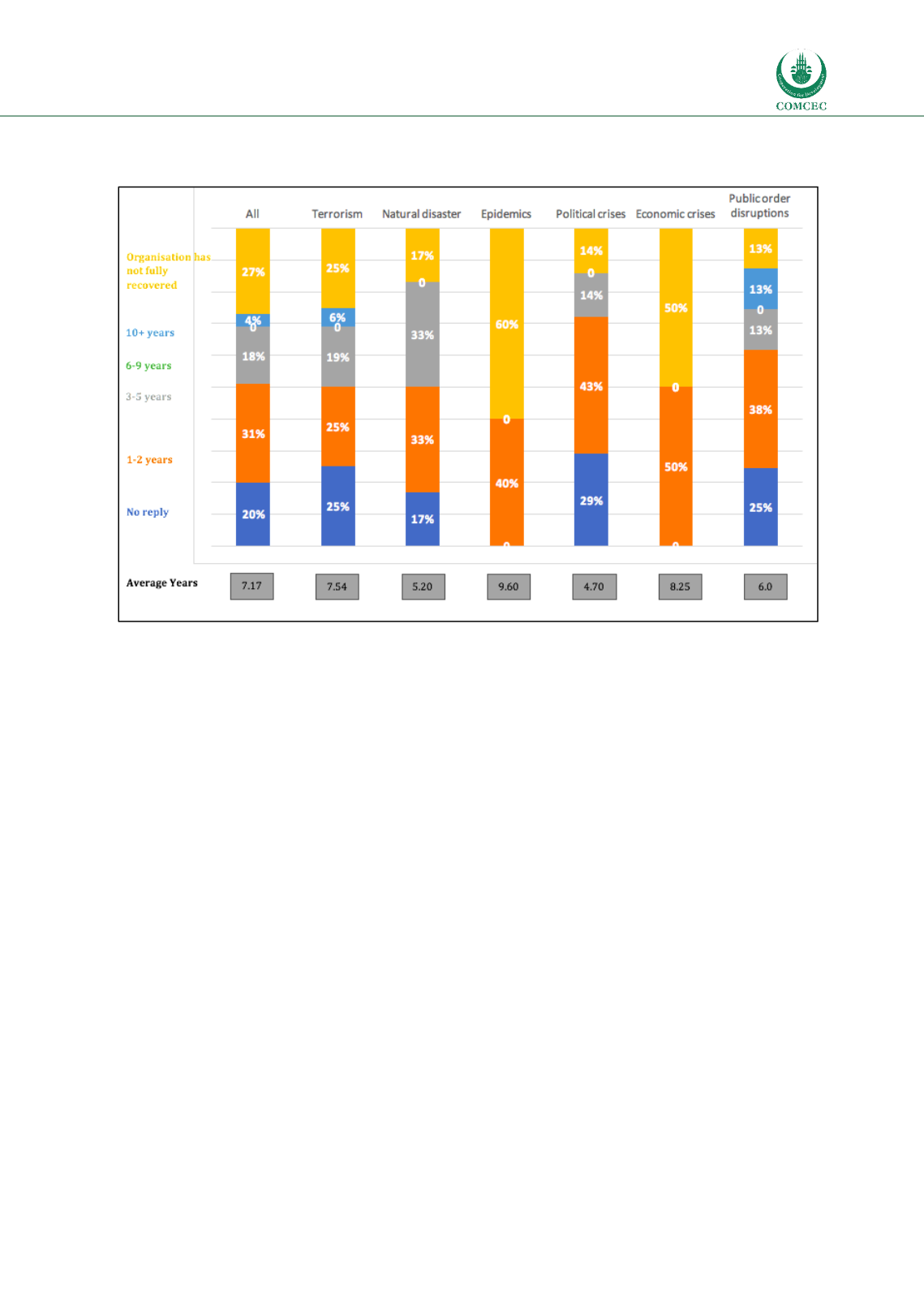

Risk & Crisis Management in Tourism Sector:
Recovery from Crisis
in the OIC Member Countries
33
Figure 1.4: Length of Time Taken for Own Organisation to Recover From Crisis
1.7.
The Role of Media and Travel Advisories
1.7.1.
The Media
The press and other forms of traditional media such as television and news agencies have
significant influence on travellers’ decision-making and on the recovery of tourism through
reporting on the damage or suffering caused by natural disasters, terrorist attacks, disease
outbreaks, or internal strife. In their investigation of media reporting on bushfires in Australia in
2013, Walters et al (2016) found that the desire to attract attention led to sensationalism and
exaggeration, and concluded that the industry needed to take a proactive stance on countering such
reports with accurate and honest accounts of the situation, as well as working cooperatively with
themedia to help themunderstand the impact of inaccurate reporting on the national economy and
to file up-to-date and positive stories.
In another example, hoteliers in the northern Indian state of Uttarkhand blamed the national
media’s exaggerated reporting of localized landslides and flooding for a steep decline in tourism
during the 2016 July season (Sharma, 2016), when mountain resorts normally benefit from
domestic tourists seeking to escape the heat of the lowlands.
The mainstream media prides itself on rapid reporting of significant events across the globe,
including most forms of tourism crisis – especially those affecting members of the media outlet’s
target audience. Graphic images of disasters or crises may be accompanied by harrowing accounts
of human suffering and detailed accounts of extensive infrastructure and facility damage and
destruction. Such images and reporting stays in the mind of the viewer long after the initial
















